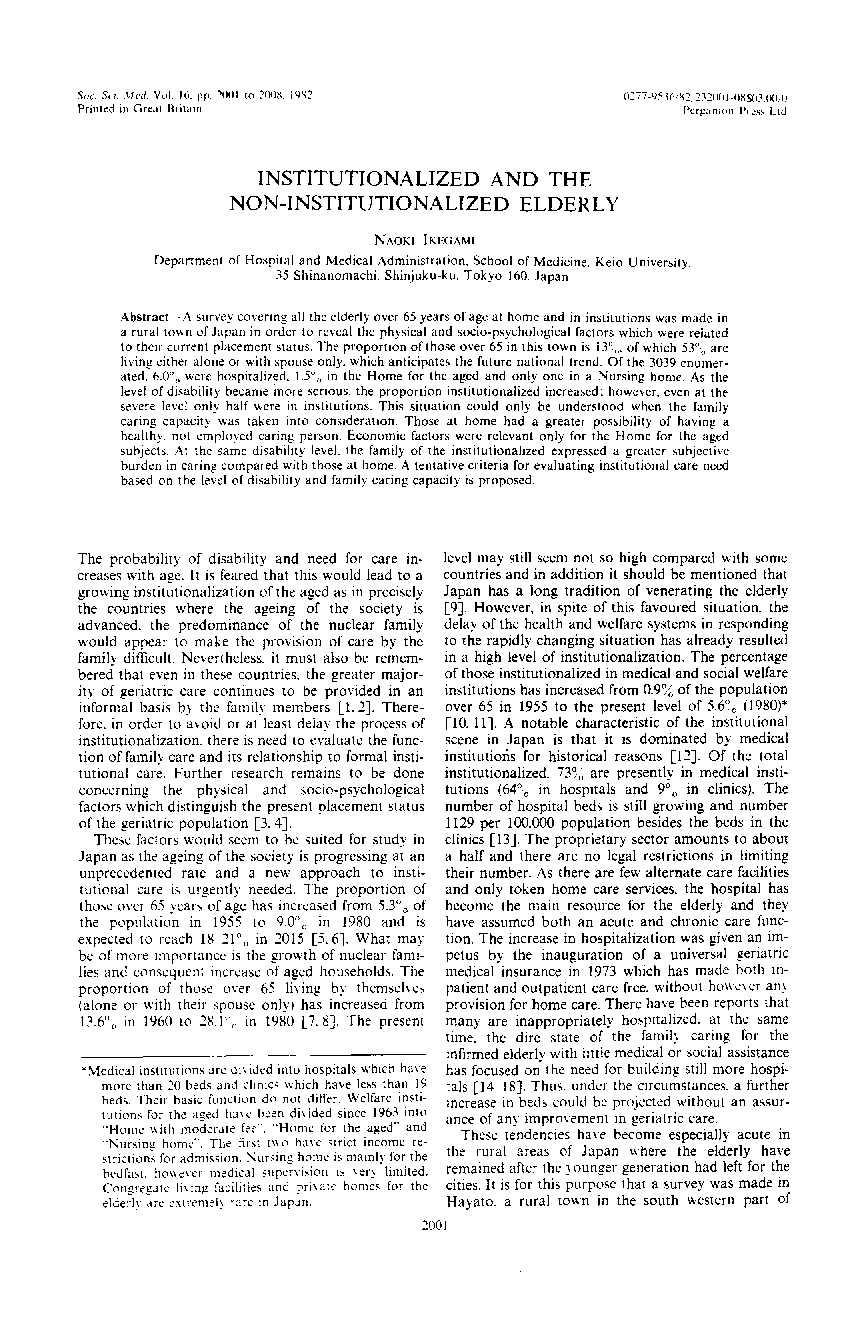| Article ID | Journal | Published Year | Pages | File Type |
|---|---|---|---|---|
| 955554 | Social Science & Medicine | 2008 | 8 Pages |
Abstract
A survey covering all the elderly over 65 years of age at home and in institutions was made in a rural town of Japan in order to reveal the physical and socio-psychological factors which were related to their current placement status. The proportion of those over 65 in this town is 13%, of which 53% are living either alone or with spouse only, which anticipates the future national trend. Of the 3039 enumerated, 6.0% were hospitalized, 1.5% in the Home for the aged and only one in a Nursing home. As the level of disability became more serious, the proportion institutionalized increased; however, even at the severe level only half were in institutions. This situation could only be understood when the family caring capacity was taken into consideration. Those at home had a greater possibility of having a healthy, not employed caring person. Economic factors were relevant only for the Home for the aged subjects. At the same disability level, the family of the institutionalized expressed a greater subjective burden in caring compared with those at home. A tentative criteria for evaluating institutional care need based on the level of disability and family caring capacity is proposed.
Related Topics
Health Sciences
Medicine and Dentistry
Public Health and Health Policy
Authors
Naoki Ikegami,
